I’m on a quest to catch a fish in each of the 50 U.S. states – and to use each adventure as a means to explore conservation, the latest fisheries research and our complicated connections to the natural world.
The town was just coming awake on this humid Sunday morning: a few people out for a morning stroll, a couple kids playing catch in a city park. As I strolled along a path paralleling the Gulf Coast, I was encouraged to see a bit more activity out in the water, with obvious ripples of feeding fish. My trip, it appeared, wouldn’t be in vain.
I was attending a conference in Alabama, and a look at a map revealed I was only a short drive from Mississippi, a state where I had not caught a fish. I had a few free hours on Sunday, so I popped awake before sunrise, packed up some fishing gear and snacks and took a quick road trip.
I drove with that cheeriness perhaps only understandable to those with a similar penchant for weird goals. Maybe I’d find fish, maybe I wouldn’t. But at least I’d be fishing.
One of the great things about fishing is that you can find fish just about anywhere. You don’t need pristine wilderness. That means I pack a collapsible fishing rod along on work trips and vacations. You can usually find a river, city pond, canal or ditch with enough water to support a fish population.
On the coast, I look for public fishing piers.
These piers are popular public recreational resources. You can often catch a variety of species. There’s often a sense of camaraderie among fellow pier anglers. And yet, despite all these attributes, fishing piers remain ignored by the outdoor media and mainstream fishing culture.
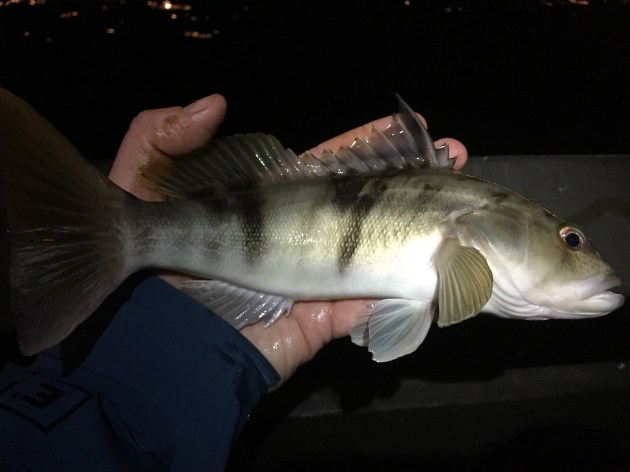
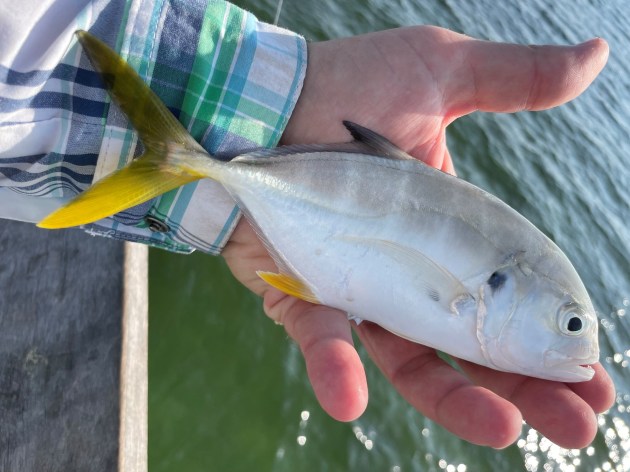
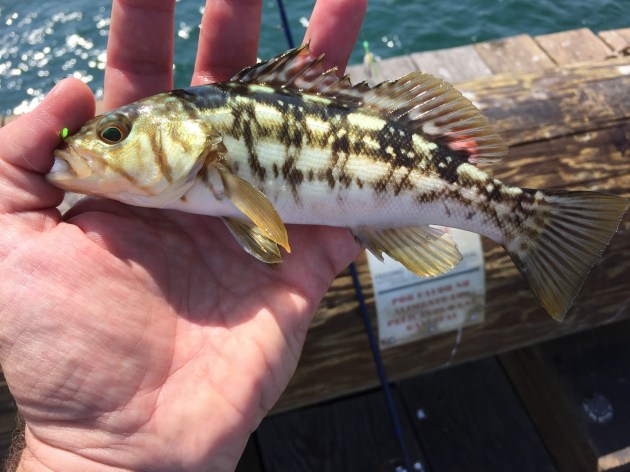
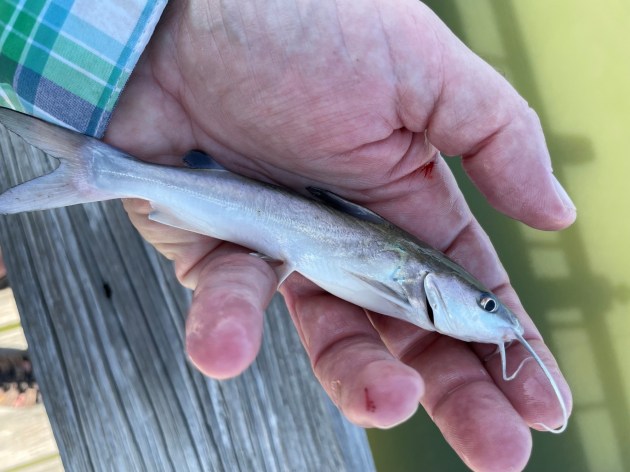
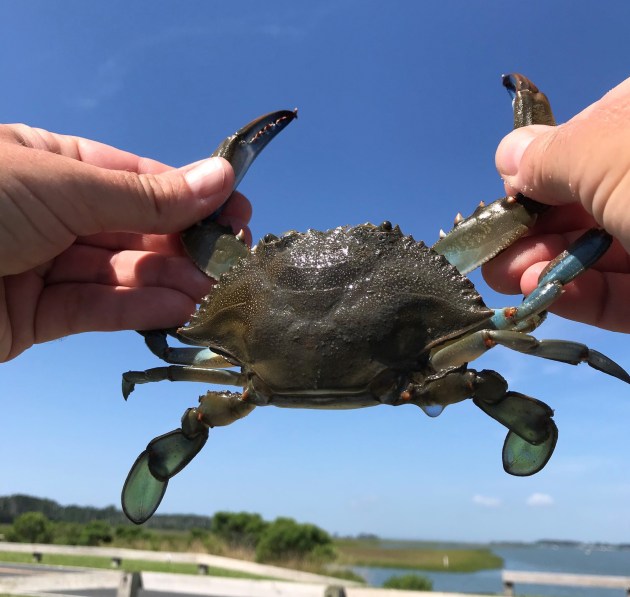
Out on the Pier
Fishing piers are structures built out over the water to provide easy fishing access. They are common on the coast (and can often be found on larger rivers and lakes, too). Fish are drawn to the structure created by the pier, so anglers without boats can catch fish for dinner or recreation.
Piers vary widely: some are a simple wooden platform whereas others have tackle shops, restaurants and other amenities. There are private piers, but many are built as public recreational resources, much like city parks. California has an extensive public pier system, with no admission fee and no fishing license required.
I’d walked by these piers for years while visiting beaches, scarcely paying them any thought. At the time, my fishing largely involved trout and streams. As I sought to vary my angling experiences, I started to wonder about these piers. So I packed a little rod and some hooks to a work meeting in northern California.
I had no idea what I was doing, so I did what I often do when prospecting for fish. I used a “fish finder” rig, a basic set-up that involves a sinker and a baited hook. Within a few minutes I had caught my first fish. I was, if you’ll pardon the overused pun, hooked.
For a naturalist-angler like me, the appeal was obvious. The variety of fish available was almost mind-boggling to a trout-stream angler. I soon was packing not only a tackle bag but a field guide. The fish I caught had appearances to match their evocative names: lizardfish, toadfish, scorpionfish. When mackerel were running, they’d hit jigs on every cast. I caught surf perches and rockfishes and sculpins, and even marine creatures that weren’t fish: octopus, various crab species, and, on one memorable occasion, a mantis shrimp.
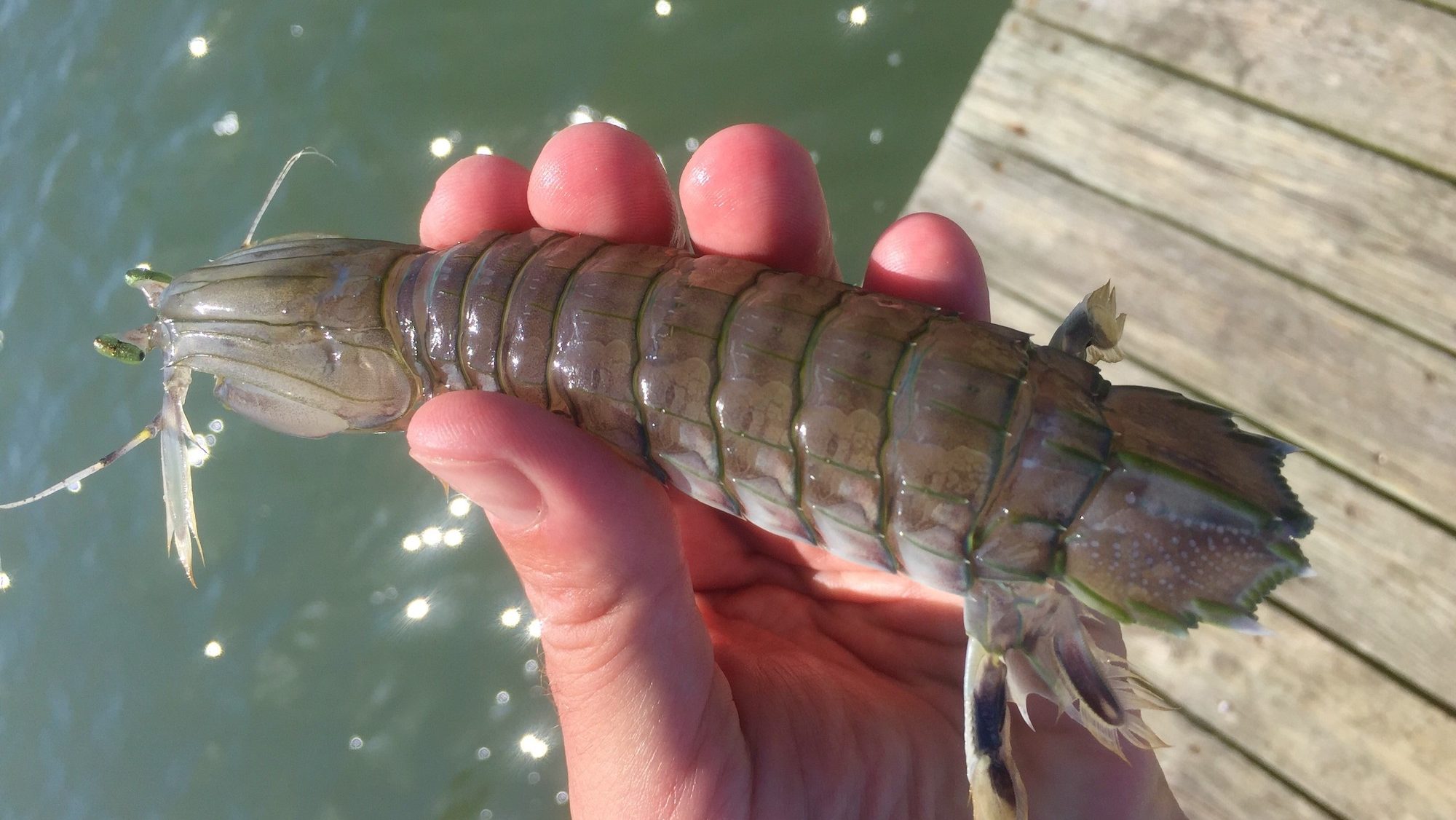
In the early mornings and late evenings, piers are also peaceful places to be, even when they’re located in bustling cities. While you won’t see a grizzly bear or moose in most downtowns, the ocean remains a vast, wild place even adjacent to developed coasts. Marine environments may be greatly diminished, but much of its diversity remains. Sitting on a pier, I will see a variety of sea birds and waterfowl, sharks, sea turtles and marine mammals.
I seldom fished alone. People lined up along the railing to catch their dinner, to unwind after work, to have fun with family – the same reasons people fish anywhere. I’d see anglers with huge rods waiting for large stingrays, and also anglers with a hand line wrapped around a soda bottle. The air is filled with fishing talk in multiple languages.
A subculture – self-described “pier rats” – has grown up around these structures. Unlike the “bro scene” you find in many fly fishing destinations, the pier scene is friendly and welcoming. As an obvious pier novice, I’m often offered tips, bait or beer.
Pier fishing is arguably the most diverse outdoor recreational scene in the United States. As Ken Jones, author of the encyclopedic web site and book Pier Fishing in California, puts it “[Piers] provide a common ground where all can experience the joy of recreational fishing. Where all can enjoy the fairly clean air and free sunshine. Where all can learn to appreciate one another.”
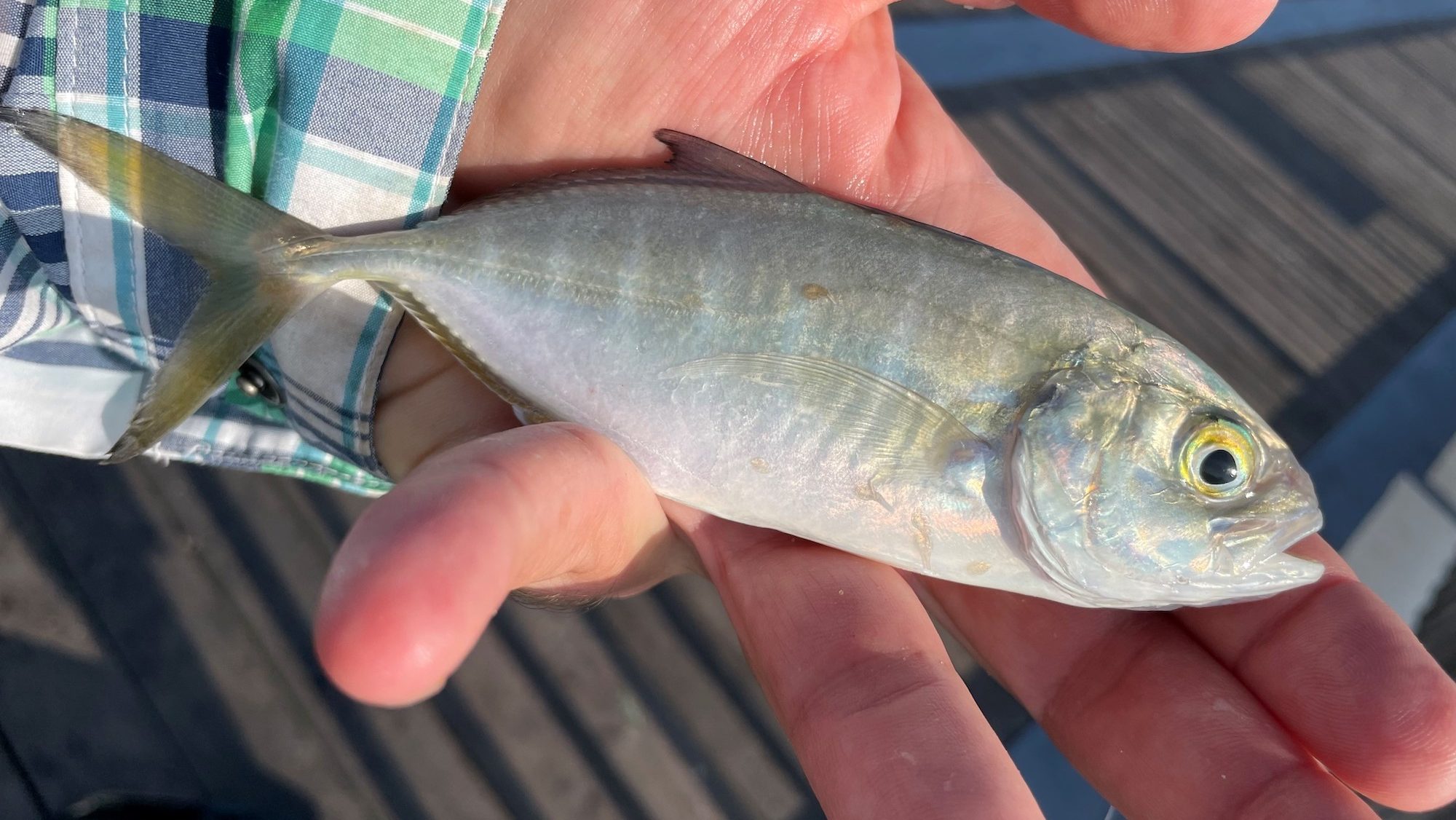
The Mississippi Fish
This morning, it was clear I wouldn’t find this usual pier fishing camaraderie. The pier was empty. Not always a good sign. Pier fishing is often productive, but as with any fishing, it depends a lot on tides, feeding activity and weather.
In fact, a couple of morning walkers stopped and suggested I come back later, or drive farther along the Gulf Coast. I wasn’t discouraged. I wasn’t seeking a trophy or dinner. I just wanted to catch a fish.
I could see the ripples of fish chasing prey. Some were well out of casting distance, but I figured some would be feeding around the pier.
I rigged up with a piece of shrimp when I cast out. Anticipation is a big part of the thrill of fishing. I’d thought about my Mississippi fish as I drifted to sleep last night, and during the drive along the coast. I cast and settled in for a wait, figuring I’d have some time to do a little birding or just enjoy the coastal views.
But, as sometimes happens in fishing, there was no real drama today. First cast, first bite. Within a minute, I had a fish on and was reeling it in.
I quickly saw a pinfish, an abundant species on the Gulf Coast. They’re kind of the saltwater equivalent to the bluegill: Common, aggressive, easy to catch. A kid-friendly fish, and also perfect for anglers trying to catch a fish in every state.
I released the fish and cast again. It quickly became apparent that pinfish were swarming these waters. Every cast, I caught another one. I moved a bit, and caught a small hardhead catfish, another common pier catch. Nothing exotic, but how could I complain? Pelicans wheeled overhead, jack crevalle crashed baitfish just out of casting reach, and I had my Mississippi fish.
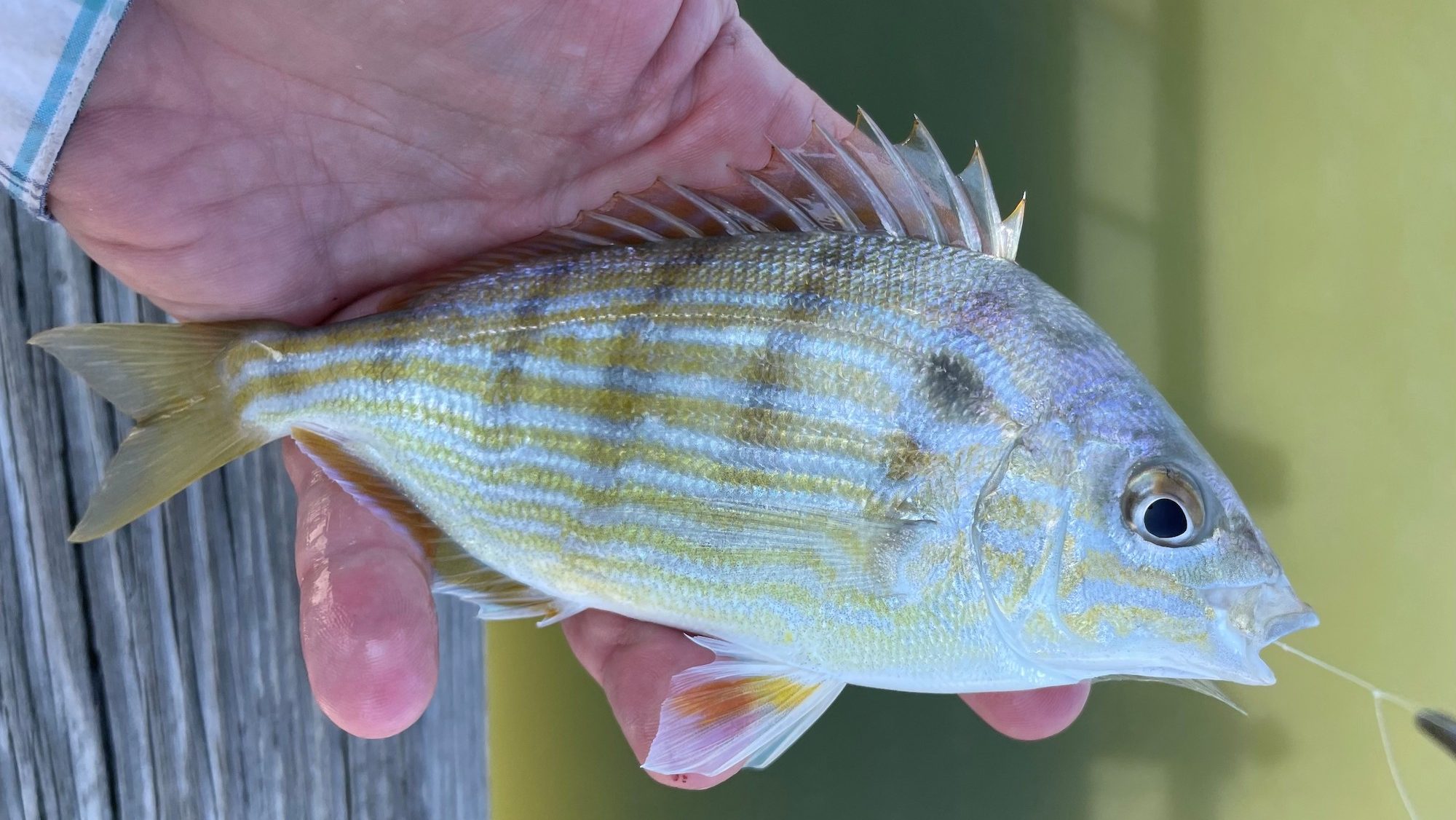
Why Fishing Publications Are Without Piers
Fishing piers may be popular places, but you’d never know that looking at outdoor media. In my decades of reading way, way too many outdoor magazines, I’ve never seen a story on fishing piers. Not one. You won’t see a pier angler on the cover of Outdoor Life; you won’t find a feature story rhapsodizing on the spiritual aspects of pier fishing.
Why? Is it the urban setting? The fact that pier fishing doesn’t require expensive gear that can be advertised? Something else?
I’ve heard the argument that pier fishing is not as “serious” as other forms of angling. This is because it doesn’t require boats, fashionable brand clothing or $1,000 fly rods. (Other forms of fishing don’t require this either, for that matter). This equates fishing seriousness with money spent. But even a quick trip to a pier reveals that there are anglers who are out there every day, far more serious than what you find on many destination trout rivers.
If it’s that fishing piers are less “wild”, let’s look at fly fishing. Many famous trout waters are tailwaters – the waters below dams – stocked with non-native fish. While I’ve cast a lot of flies on tailwaters, over time it begins to feel like the fly fishing version of a golf course. A pier may be developed, but the fish remain wild and diverse.
Pier fishing author Ken Jones believes the explanation for pier disdain is simpler: xenophobia and bigotry. And looking through outdoor media, he is likely right. For all the hand wringing about diversifying the fishing community, for all the money spent bringing youth to the sport, outdoor recreation remains depressingly elitist.
If you want to understand diversity and outdoor recreation for all, head to a fishing pier.
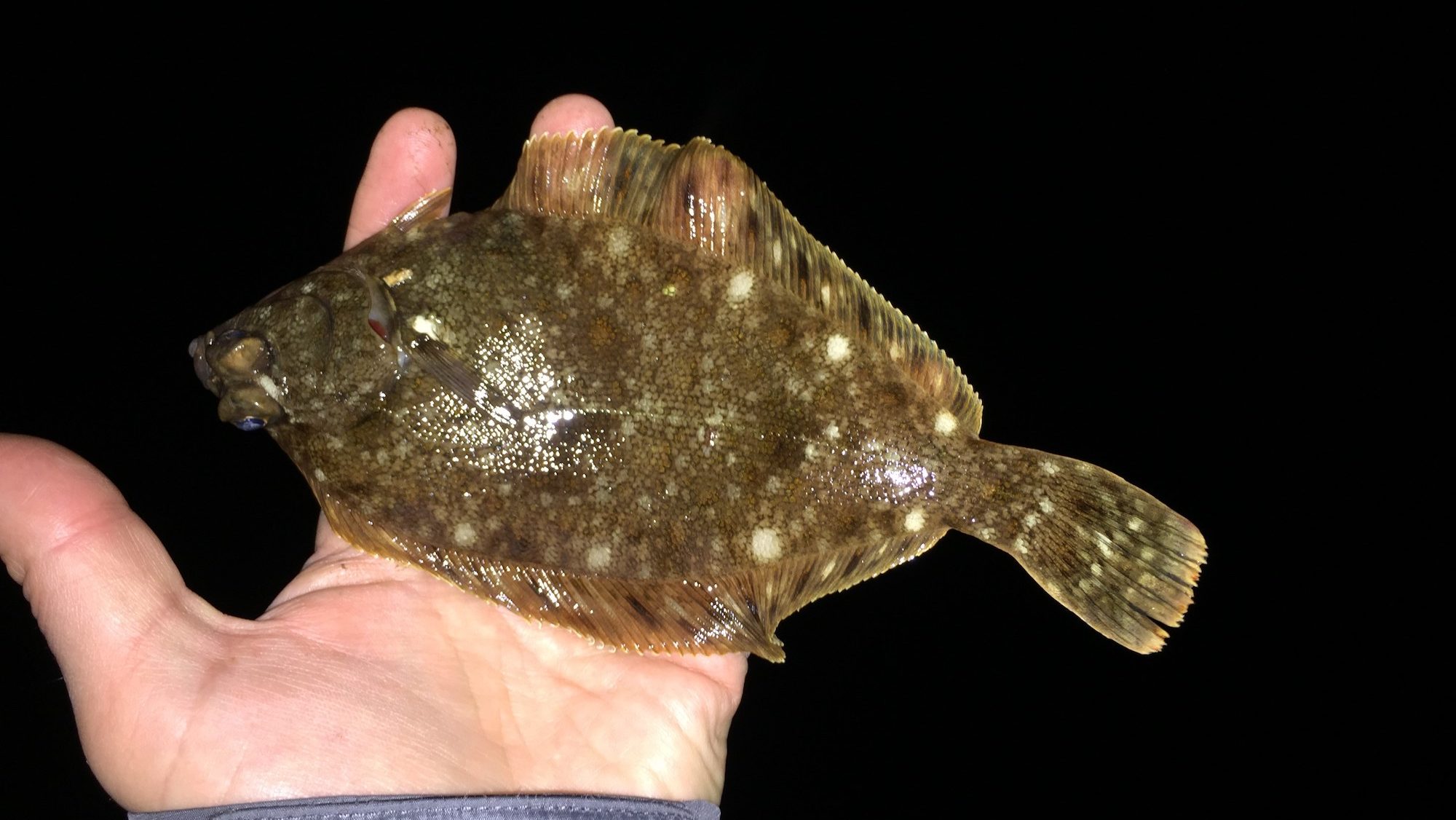
Gulf Coast Morning
My own Mississippi pier outing continued with plenty of action, although most of it was pinfish. I moved around, until eventually even the pinfish quit biting. Then I just sat and watched pelicans.
As much as I enjoy the social interactions at conferences, as an introvert it’s always nice to have some quiet time to reset and reflect. Fishing is one of the few spaces where I’m not thinking about writing, work worries and the various thoughts that fill my overly busy mind.
I can concentrate on fish, on water, on birds.
As a committed small-stream angler, the ocean can seem almost impossibly vast. For years, I avoided saltwater angling because I didn’t know where to begin. A fishing pier shrinks that vastness, and yet the marine realm in all its diversity is right in front of me.
And so I cast and contemplate and wonder what fish I’ll catch next.
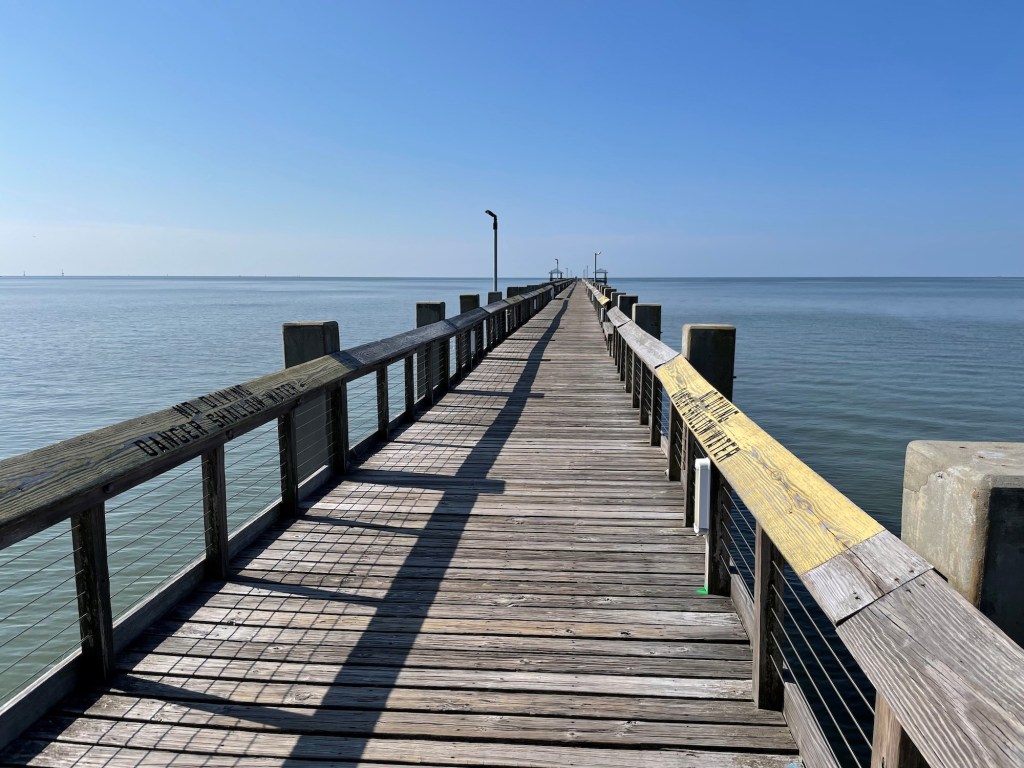



I Do Not Fish, but I LOVED reading this.
Hi Matt
First I want to say your outdoor writing is just outstanding.
After reading this it was kind of odd as I started fishing just the opposite of you by first learning to fish on the Berkeley pier in San Francisco Bay not knowing anything about freshwater fishing until later on in life.
Now I’ve come to love fishing small freshwater with my 4wt fly rod for anything that will put a bend in it (it doesn’t take much) and enjoy the sounds and smells of the outdoors.
Thanks for reminding me of some long ago memories.
Thanks Dan (and others) for the kind words. I’m glad the story resonated. Dan, I too love fishing small streams with a light fly rod. So many streams (and piers) to explore! Thanks for reading.
Matt Miller
Assuming most of those fishing (other than supper fishing) are catch & release. Being outdoors – seeing other species – seeing & experiencing nature is a wonderful way of spending time. The fish get to go on with their lives (assuming everyone is careful removing hooks) & humans actually get outside!!!
I have been on piers many times and watched the people fishing there, but I never thought of it in this way. Thanks Matt. Fascinating read.